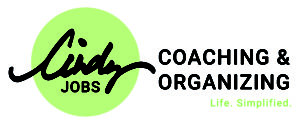It’s not at all uncommon for clients to come to ADHD coaching looking for the one tip, tool, or trick that will keep their ADHD at bay.
Unfortunately, it’s not that easy. ADHD manifests itself differently in each individual. What works for one may not work for another. Or it may. But there are a few things that, when done consistently, have helped nearly all of the clients I serve.
#1: Medication
Hands down, medication is believed to be the most effective treatment for ADHD. “If you have ADHD, studies show there’s an over 80% chance that you are going to respond to medication.” For my clients that take medication, there is an instant awareness of how they feel on their medication. If you feel comfortable with taking medication and aren’t already, I suggest you consult with your physician as soon as possible. According to my clients, it is a GAME CHANGER!
#2. Sleep
“One study found that roughly two-thirds of people with ADHD — 67% — found it hard to get a good night’s sleep.” Nearly all of my clients struggle with sleep hygiene, most admitting to getting an average of six hours of sleep each night, much less than the Mayo Clinic guidelines of seven to nine hours a night for adults. Shifting sleep patterns takes dedication, effort, and is most effectively done in baby steps, moving by 15 minutes a day.
#3. Hydration
Most people don’t hydrate enough. The newest rule of thumb is to take our body weight and divide it by two. That’s the number of ounces of water (or clear liquids) we should consume per day. The implication of even mild dehydration can be significant: “Being dehydrated by just 2% impairs performance in tasks that require attention, psychomotor, and immediate memory skills, as well as assessment of the subjective state.”
#4. Exercise
According to WebMD, “When you exercise, your brain releases chemicals called neurotransmitters, including dopamine, which help with attention and clear thinking. People with ADHD often have less dopamine than usual in their brain.” Health experts recommend 150 minutes of exercise a week. If the activity is highly aerobic, 75 minutes may be sufficient.
#5. Protein
A well-balanced diet is essential for everyone; however, for an ADHD brain, a protein-rich diet is even more critical. “Protein-rich foods are used by the body to make neurotransmitters, the chemicals released by brain cells to communicate with each other.” Are you craving a steak or some tofu right now?
There are many other things that people can do to help keep ADHD symptoms at bay, but these are the top five I ask my clients to engage with when we begin our coaching partnership.
Which of these tools can you implement today?
Cindy Jobs
Looking for more information?
Click here for ADHD-friendly Time Management Tools
Click here for 15-minute organizing tips.
Click here to schedule a complimentary breakthrough session.
For more helpful information, follow me on Facebook.










